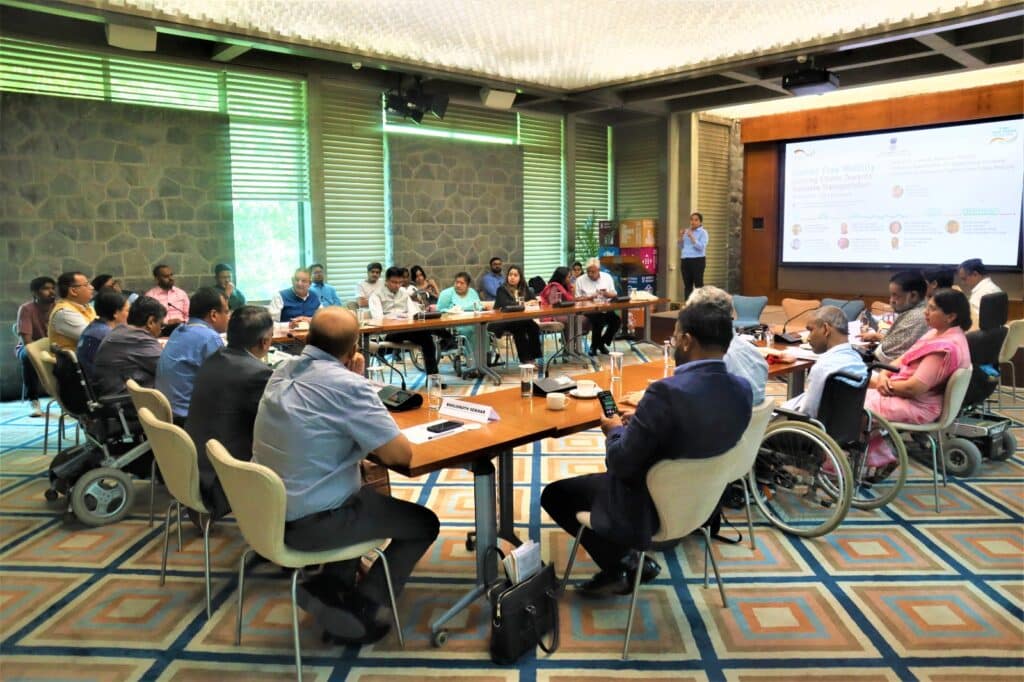
Equitable access to transportation is crucial for ensuring that all citizens can participate fully in economic and social life. In India, however, 26.8 million individuals with disabilities face significant daily challenges due to cities and public transport systems that are not designed with their needs in mind. This lack of barrier-free access not only hinders mobility, but also limits the opportunities for employment and social inclusion. Addressing this challenge is not just a matter of improving infrastructure, but it is about upholding the fundamental rights of a significant portion of the population and moving towards a more inclusive society.
The recent panel hosted by GIZ India in May 2024, titled “Barrier Free Mobility: Unifying Efforts Towards Inclusive Transportation”, marks a critical milestone in this ongoing effort, bringing together key stakeholders to advance the dialogue on inclusive urban mobility.
The panel focused on two major aspects: the need for universal design in urban transport and the importance of consolidating disability-disaggregated data to guide informed decision-making. The discussions underscored the significant gaps that still exist in India’s policy landscape regarding accessibility and mobility for Persons with Disabilities (PwDs). One of the most notable outcomes of the event was the proposal to establish a Universal Accessibility Alliance at the national level. This alliance would bring together government entities, the private sector, and civil society organisations to coordinate efforts, bridge existing gaps in accessibility, and ensure that inclusive mobility solutions are implemented across the country.
Another key topic was the integration of technology and digital tools to support data-driven approaches to mobility planning. Participants highlighted the challenges of collecting and securing disability-specific data in India, stressing the need for standardised methods and enhanced digital literacy. The forum proposed creating a unified platform for disability-disaggregated data and geospatial mapping, which could be leveraged through big data, AI, and machine learning to improve accessibility. Additionally, the idea of a crowdsourced mobile app to provide real-time information on accessibility was discussed, emphasizing the role of technology in enabling seamless and inclusive mobility.
The panel brought together a diverse group of stakeholders, including government officials, private sector leaders, and civil society representatives. The event was significant not only because of the range of participants but also because it set the stage for the future formation of a Universal Accessibility Alliance. By fostering collaboration among key players, these efforts have the potential to drive changes in India’s approach to urban mobility, making it more inclusive and aligned with global commitments like the UN’s Sustainable Development Goals (SDGs).
The initiatives and strategies developed could pave the way for more equitable and accessible cities across India, directly improving the lives of millions of differently-abled individuals.
The Sustainable Urban Mobility – Air Quality, Climate Action and Accessibility (SUM-ACA) project is funded by the German Federal Ministry for Economic Cooperation and Development (BMZ).